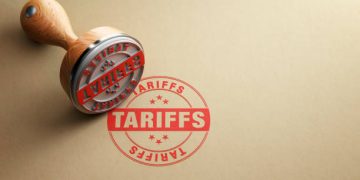The Biden administration has hinted at the possibility of implementing additional tariffs on Chinese imports, underscoring a continuing trend of strained relations with China, regardless of the outcome of the upcoming U.S. presidential election. President Joe Biden recently visited Pennsylvania, a key battleground state, to advocate for higher tariffs on Chinese steel and aluminum products. Senior administration officials have indicated that these measures may not be the final actions taken against China during this election season. In parallel, Treasury Secretary Janet Yellen has suggested that tariffs on Chinese electric vehicles might be warranted to safeguard American workers from what is perceived as Beijing’s overproduction. Additionally, the administration has initiated an investigation into what it describes as China’s efforts to dominate certain industries such as maritime, logistics, and shipbuilding.
Many experts anticipate that the result of this investigation, coupled with an ongoing review of trade policies inherited from the previous administration, may lead to further tariffs on Chinese imports. In response, Liu Pengyu, a spokesperson for the Chinese embassy in Washington, criticized the U.S.’s unilateral and protectionist tariff policies, expressing dissatisfaction with the frequent use of national security and non-market reasons to impose trade restrictions. The decision by the Biden administration to escalate tariff measures indicates a stance of heightened vigilance on trade matters as the 2024 election approaches. Both President Biden and his Republican counterpart, former President Donald Trump, view a tough stance on China as integral to their electoral strategies, particularly in states like Michigan and Pennsylvania.
Trump has proposed a 10% across-the-board tariff on imports if he were to return to office. He also advocates for the gradual elimination of Chinese imports in various sectors over four years and seeks to prohibit Chinese ownership of U.S. infrastructure in certain industries. According to a Gallup poll released in March, 41% of Americans perceive China as the greatest U.S. adversary for the fourth consecutive year, reflecting a sustained concern among the public. Allen Carlson, a professor at Cornell University specializing in U.S.-China relations, noted the increasing entanglement of China in what appears to be a deteriorating cycle of relations between the two countries. While White House officials reject assertions that political motives are driving these actions, President Biden emphasized the proposed steel tariffs during a speech at the United Steelworkers union headquarters in Pennsylvania. Administration officials argue that the concern is primarily economic, citing fears that a surge of low-cost Chinese exports could undermine tax incentives secured by the Biden administration to bolster domestic industries such as solar, wind, and electric vehicles.
For example, the administration is considering lifting tariff exemptions on double-sided solar panels, known as bifacials, due to an influx of cheap Chinese cells flooding the U.S. market. This move is seen as an effort to protect domestic manufacturers, such as South Korea’s Hanwha Qcells, which has pledged significant investments in U.S. solar manufacturing. Biden aides emphasize that their administration’s tariff policies differ from Trump’s approach, focusing on specific industries and products rather than broad measures. They believe this targeted approach may reduce the risk of strong retaliation from China and other foreign governments. Despite political differences, strong opposition to China is a rare issue that garners bipartisan support in the United States. Bill Reinsch, a senior adviser at the Center for Strategic and International Studies, noted the prevailing anti-China sentiment in public opinion, which transcends partisan lines.
Stay informed with supply chain news on The Supply Chain Report. Learn more about international trade at ADAMftd.com.
#TradeWarImpacts #EconomicSupply #GlobalTradeFlow #TradePolicy #GlobalSupplyChain















